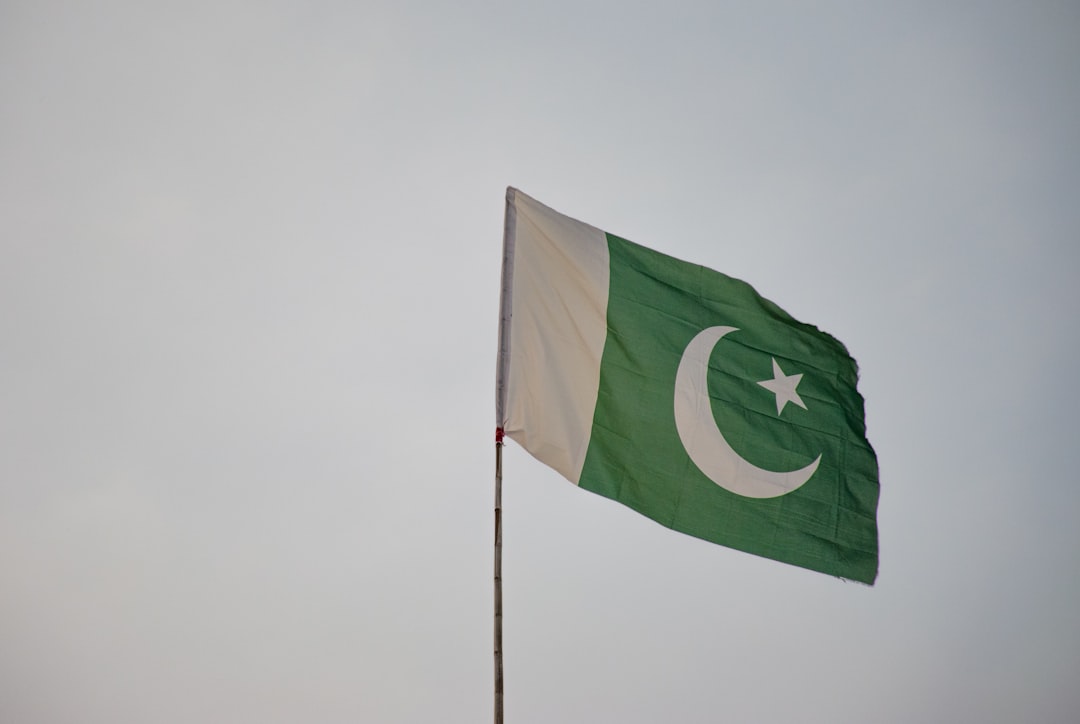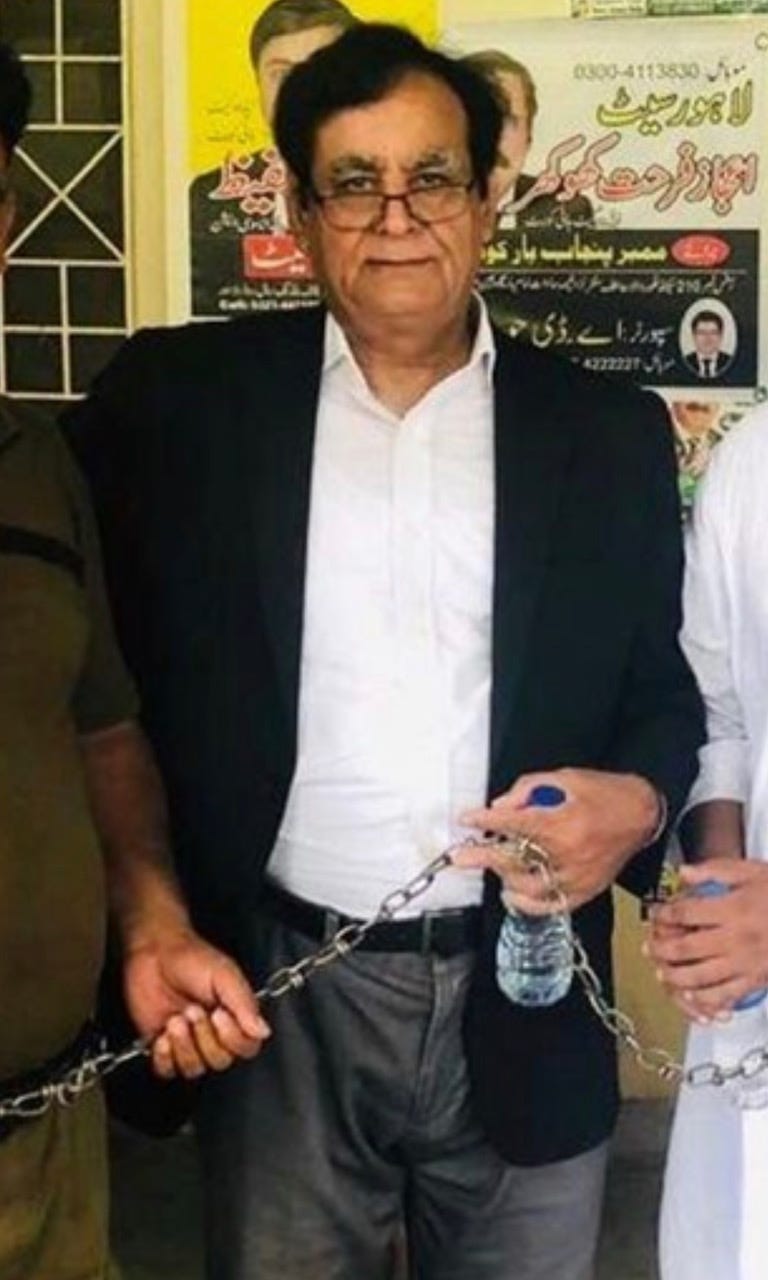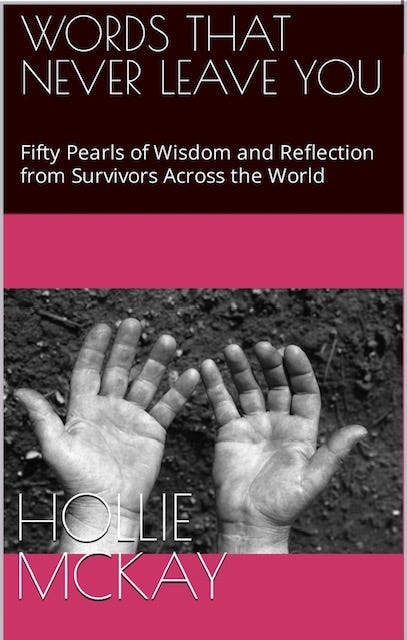Junaid Hafeez, a charismatic and philosophical young poet who received his Master’s as a Fulbright scholar in the United States, has languished for years behind bars in the bowels of a Pakistani prison faced with execution.
His crime? Well, there is no hard evidence of a crime. Yet Junaid, who was teaching in the English department at Bahauddin Zakariya University in Multan, a city in Punjab Province near his childhood home, is accused of blasphemy, perhaps the most egregious crime in the eyes of Pakistani law. One day in 2013, a student member of Islami Jamiat Talaba, a branch of the extremist Jamaat-i-Islami party, suddenly accused – without proof – the popular and esteemed teacher of insulting the Prophet Muhammad on Facebook, igniting violent protests calling for Junaid’s killing across campus.
Without investigation, police hauled Junaid away.
“Blasphemy is regarded as a worse crime than murder,” Juliet Chowdhry, a spokesperson for the British Asian Christian Association, once told me when I started probing so-called “blasphemy” cases in the Muslim-majority country years ago. “Police fudge blasphemy investigations, district courts ignore statutory procedure and resort to Sharia adherence to satisfy baying mobs or in response to receipt of a bribe.”
Junaid’s attorney Saif Malook, someone I have known for a long time, is perhaps the most courageous defender I have ever met. His life is constantly under threat as one of the few lawyers willing to take on such hot-button cases, but the willingness to do what is right drives him to walk into the morass time and time again.
Despite the widespread criticism of its blasphemy laws from human rights groups worldwide, Pakistan's National Assembly unanimously expanded the legislation, which already comes with the death penalty for those convicted of insulting the Prophet. So now, anyone considered to have disgraced the Prophet’s comrades, including his wives and thousands of early Muslims, face massive fines and life imprisonment.
Nevertheless, as I and many others who work in the human rights space can attest, blasphemy laws, wherever deployed, are not impieties from the Quran but rather authoritarian pretexts to squash political dissent. Furthermore, they are a means for individuals to seek revenge on others over personal grievances such as disagreements, land or money feuds, and a mechanism for some in the Muslim-majority population to persecute Christians and other minorities without having to provide any evidence beyond their own claims.
Over the past thirty years, authorities have charged more than fifteen hundred Pakistanis with blasphemy.
Although it carries capital punishment, no executions for the crime have been carried out since 1990. Nevertheless, extremist mobs have slain more than seventy of the accused, and dozens more have been gravely tortured and wounded. Authorities often turn a blind eye toward these acts of vigilante justice, often before cases can even stand trial. Roughly forty people are currently on death row in Pakistan for blasphemy.
For one, in February, hundreds scaled walls and stormed a police station in Punjab province, yanking a man accused of blasphemy from his cell, dragging him outside and lynching him. Police could only intervene when mobsters were about to burn his body.
Such chilling scenes happen routinely. The first lawyer for Junaid, Rashid Rehman, a 53-year-old special coordinator for the Human Rights Commission of Pakistan – who had urged the government for security assistance – was shot dead by two “unidentified individuals” in his office last May.
Saif has since gallantly taken on the case, fighting for an appeal before the Lahore High Court. For him, it comes down to the notion that if you can do the work, you should do the work. Most of his clients hail from the poorest cracks in rural communities and suffer for over a decade as kangaroo court proceedings transpire, often in solitary confinement and less than thirty minutes of sunshine daily.
To be in prison, facing such an allegation, he lamented, “is one of the worst things a human can endure.”
“Every Muslim, from the cooks and convicts to the guards, will see that person as the enemy, see them with hatred, and they are in constant danger of being harmed,” Saif said. “The mental health of even the strongest person accused of blasphemy deteriorates with the tension and pressure.”
Saif continues to fight on appeal for Asif Pervaiz, a destitute Christian garment factory worker sentenced in 2020 to hanging for blasphemy. Asif’s ordeal began in 2013 when his boss pressured him to convert to Islam.
When Asif refused, the superior went to the authorities with claims the worker sent a series of text messages smearing the Prophet.
“Asif has small children, and now they have no house and no food,” Saif tells me sadly. “I don’t know how many more years he will be in jail — but the moment someone is sentenced to death, there is nothing I can do but watch their health go down, down, down.”

After years of fighting and finally freeing an impoverished, disabled Christian couple accused of sending blasphemous text messages (when they weren’t even literate) two years ago, Saif viscerally understood that his own life could be over.
“They (angry extremists) called me an agent of the Jews, and many of the threats the Pakistani government determined to be credible,” he said from his home in Lahore at the time.
While Saif, a Muslim, accepts the consequences of his work as one of the last lawyers willing to represent Christians on blasphemy charges, the impact spreads to his wife, a mathematics college professor, and his teen daughter, both of whom also endure public taunts.
“My neighbors won’t talk to me; members of my family hate me too,” Saif continues. “But I am working for these helpless people, because it is the right thing to do.”
Despite the death threats, Saif, who earned his criminal law degree at the University of Punjab, Lahore, in 1980, continues to pursue justice while appealing to Western nations for further help.
“No other lawyers want to take on these cases — no person has a life hereafter taking on blasphemy cases, and there is no money in it. Those accused are very, very poor,” he notes. “The whole time, you are under threat, even from normal people who tell me I am supporting those who commit blasphemy.”
With his head high, Saif continues to fluctuate between Pakistan and Europe, pleading for Western leaders – the supposed gatekeepers of human rights and religious freedom – to use their power to act on behalf of those unjustly banished by the state.
“I feel our Constitution guarantees everyone to be treated equally, and no one can be discriminated against based on religion,” Saif adds with a heavy sigh. “Despite being dangerous, I must continue. Islam says it’s better to acquit ninety-nine guilty instead of convicting one innocent.”
PLEASE CONSIDER A PAID SUBSCRIPTION TO THIS SUBSTACK TO HELP KEEP INDEPENDENT WRITING AND JOURNALISM ALIVE. THANK YOU SO MUCH FOR YOUR SUPPORT.
For speaking queries please contact meta@metaspeakers.org
Follow me on Instagram and Twitter for more updates
HOLLIE’S BOOKS (please leave a review)
** Short read of meaningful lessons gleaned from the ordinary forced to become extraordinary
Order your copy of “Afghanistan: The End of the US Footprint and the Rise of the Taliban Rule” out now.
For those interested in learning more about the aftermath of war, please pick up a copy of my book “Only Cry for the Living: Memos from Inside the ISIS Battlefield.”
If you want to support small businesses:

















Share this post